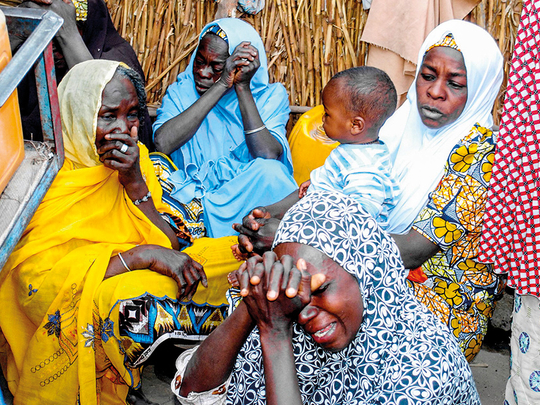
Lagos: Four female suicide bombers blew themselves up near a bus station in northeastern Nigeria early on Wednesday, killing two people, the country’s disaster agency said.
The National Emergency Management Agency (Nema) said the blasts occurred at about 1.15am (0015 GMT) in the Usmanti area on the outskirts of Maiduguri, a city which has been hit by several similar attacks in recent weeks.
“Two men were killed due to the explosion while about 16 injured people were administered first aid,” the agency’s spokesman for the northeast, Ebrahim Abdul Kadir, said in a statement.
Usmanti is near a sprawling camp for people who have been driven from the remote countryside by Boko Haram violence and, increasingly, the need for food.
The extremist group has frequently used young women and girls as human bombs.
On Saturday, civilian militia members assisting the military with security shot and killed two female bombers, who Nema said were 18-years-old, as they tried to enter Maiduguri, the capital of Borno State.
One of the would-be bombers was pregnant, the agency said.
In January, a female bomber carrying a baby on her back used the infant as a decoy before detonating her explosives, killing several people in the neighbouring state of Adamawa.
Boko Haram’s insurgency to create a hardline Islamist state in northeastern Nigeria has claimed at least 20,000 lives and forced about 2.6 million people to flee their homes.
That has triggered a dire humanitarian crisis in the three northeastern states and the wider Lake Chad region, which has also been hit by the conflict.
Aid agencies have said parts of Borno are facing “famine-like” conditions.
Boko Haram, affiliated with the Daesh group, has been severely weakened since a military offensive by Nigeria and its allies that began in early 2015. But there are still attacks on “soft” civilian targets.












